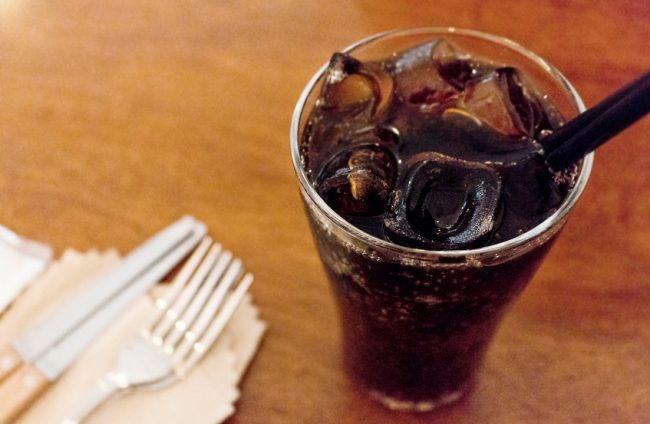If you have a sweet tooth, chances are you love soda or other sugary drinks.
In fact, a 2011 report by the Centers for Disease Control and Prevention found that about one-half of the U.S. population consumes at least one sugar-sweetened beverage each day.
Every time you gulp down one of those drinks, you probably feel a twinge of guilt about potentially damaging your teeth. Or perhaps you worry about packing on extra pounds.
However, soda may pose a less well-known – but very serious – health risk.
Consuming just one or two servings a day of a sugar-sweetened beverage significantly raises the risk of damaging your heart, according to a review paper recently published in the Journal of the American College of Cardiology.
Experts at the Harvard’s T.H. Chan School of Public Health in Boston conducted the review, billed as “the most comprehensive review of the evidence on the health effects of sugar-sweetened beverages to date.”
The paper concluded that one or two daily servings of sugar-sweetened beverages can both lead to weight gain and also raise the risk of:
- Heart attack or heart disease by 35 percent
- Type-2 diabetes by up to 26 percent
- Stroke by 16 percent
How sugary beverages damage the heart
This is not the first research to link sugar-sweetened beverages with heart problems. Earlier this year, a study published in the Journal of Clinical Nutrition found that just two weeks of consuming beverages sweetened with high-fructose corn syrup increases a person’s risk of heart disease.
Other studies dating back several years also have found links between drinking as little as one sugar-sweetened beverage a day and an increased risk of cardiovascular health problems.
Penny Kris-Etherton, chair of the American College of Cardiology’s Nutrition Work Group and a distinguished professor of nutrition at Penn State University, says sugar-sweetened beverages contain fructose, which increases the synthesis of triglycerides.
Triglycerides can build up in the bloodstream and contribute to the growth of plaque inside the arteries. This condition is known as “atherosclerosis,” and it is a major contributor to heart ailments. https://www.hopkinsmedicine.org/digestive_weight_loss_center/conditions/high_cholesterol.html
Fructose also boosts uric acid production. Hepatic uric acid production may decrease nitric oxide levels, which can adversely affect vascular health, Kris-Etherton says.
In addition, sugar-sweetened beverages impair glucose metabolism, which can cause a variety of health problems that endanger the heart, including high cholesterol levels, or “dyslipidemia.”
Other sugar-sweetened drinks your heart dislikes
Although most people think of soda as the primary sugar-sweetened beverage, many other drinks also pose risks to heart health. They include:
- Energy drinks
- Fruit drinks
- Sweet teas
“These beverages also are high in added sugar, and have the same health consequences as sugar-sweetened soda,” Kris-Etherton says.
The Harvard researchers behind the review paper say that artificially-sweetened beverages might be an acceptable alternative to regular soda, but caution that additional studies are needed to examine their long-term effects.
Meanwhile, Kris-Etherton says that when you are thirsty, nothing beats good old-fashioned H2O.
“Water is best for hydration, and (it) does not provide calories,” she says.
She adds that the federal government’s 2015 Dietary Guidelines Advisory Committee recommends water as the optimal calorie-free beverage because it is affordable and accessible.
Other alternatives include coffee and tea. Beverages made up of 100 percent fruit juice also are OK, but they pose some risks.
“Even though fruit juices are a source of vitamins and minerals, consuming too much can contribute too many calories to the diet, leading to weight gain,” Kris-Etherton says.
Heart-friendly alternatives to sugary drinks
It your sweet tooth is incurable, Kris-Etherton encourages you to reach for a piece of fruit, or at the very least to consume a diet beverage.
She also suggests more healthful options, such as a glass of sparkling water with:
- Vegetable slices (such as cucumbers, celery or carrot coins)
- Fruit pieces (such as lemon/lime wedges or berries)
- Fresh herbs (such as mint or cilantro)
Even though curing a sugary-beverage habit can be tough, Kris-Etherton says it is possible, especially if people are properly motivated.
“Individuals need to know the health risks associated with sugar-sweetened beverage consumption,” she says. “This may be a disincentive to drinking (them).”

